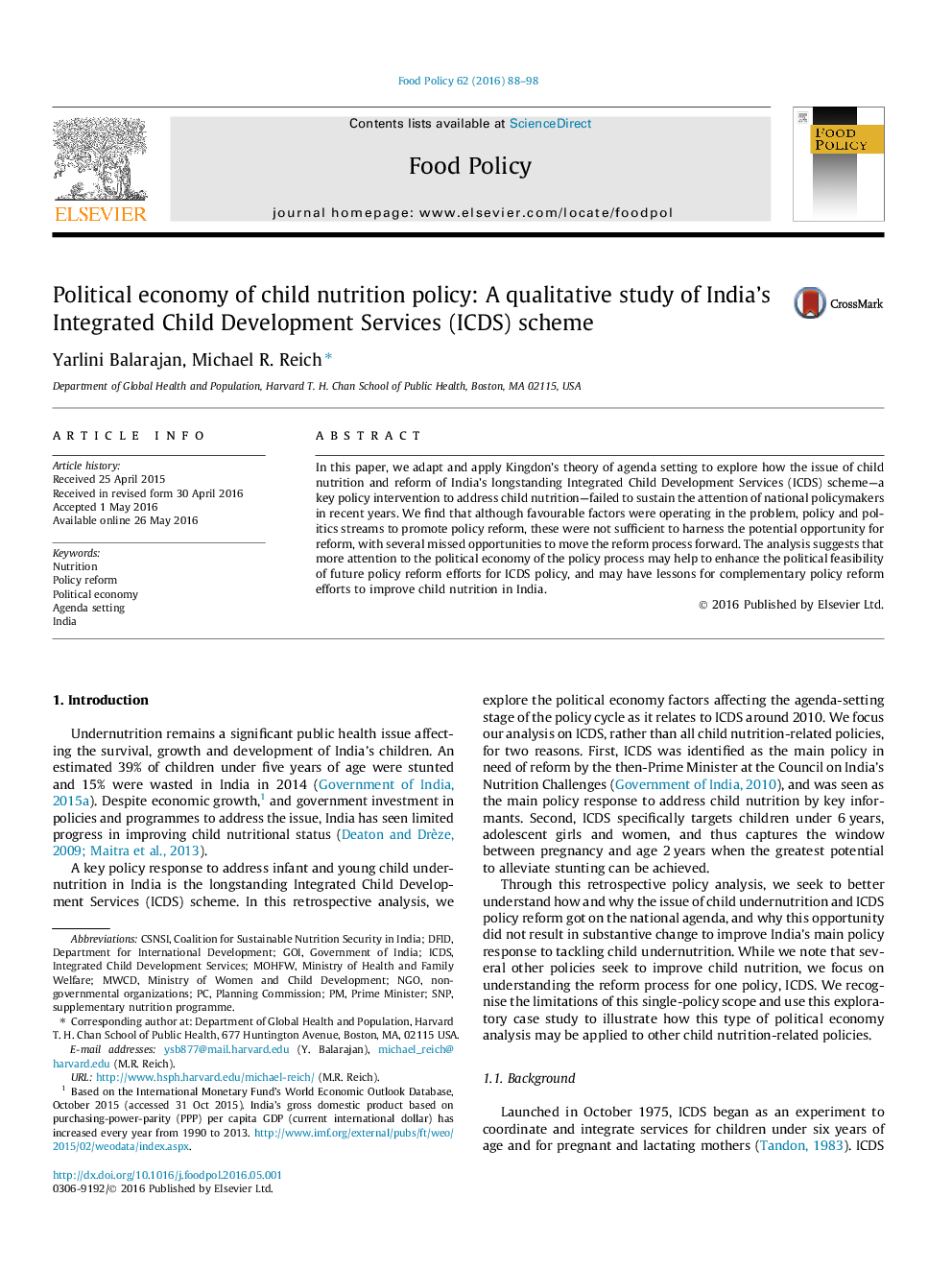| Article ID | Journal | Published Year | Pages | File Type |
|---|---|---|---|---|
| 5070137 | Food Policy | 2016 | 11 Pages |
â¢We analyse the agenda-setting process to reform a key child nutrition policy in India.â¢We adapt Kingdon's theory of agenda-setting to assess factors affecting ICDS policy reform.â¢We find several factors, including the lack of a policy entrepreneur, hampered reform efforts.â¢We suggest that greater attention to political economy analysis may support future reform efforts.
In this paper, we adapt and apply Kingdon's theory of agenda setting to explore how the issue of child nutrition and reform of India's longstanding Integrated Child Development Services (ICDS) scheme-a key policy intervention to address child nutrition-failed to sustain the attention of national policymakers in recent years. We find that although favourable factors were operating in the problem, policy and politics streams to promote policy reform, these were not sufficient to harness the potential opportunity for reform, with several missed opportunities to move the reform process forward. The analysis suggests that more attention to the political economy of the policy process may help to enhance the political feasibility of future policy reform efforts for ICDS policy, and may have lessons for complementary policy reform efforts to improve child nutrition in India.
